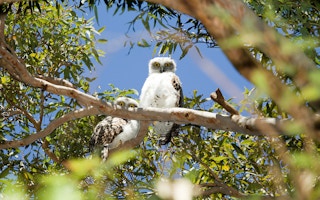The Australian branch of global sustainability consultancy South Pole on Monday launched a new product that allows companies to offset their carbon emissions and support the protection of Australian biodiversity at the same time.
To continue reading, subscribe to Eco‑Business.
There's something for everyone. We offer a range of subscription plans.
- Access our stories and receive our Insights Weekly newsletter with the free EB Member plan.
- Unlock unlimited access to our content and archive with EB Circle.
- Publish your content with EB Premium.
The product, called EcoAustralia, combines internationally verified carbon credits with “biodiversity credits” that have been endorsed by the Australian government. Each biodiversity credit represents 1.5 square metres of land under protection.
Jay van Rijn, senior key account manager, South Pole, told Eco-Business that “EcoAustralia is unique because it is the only product in the Australian carbon market which produces a transparent, measurable and direct investment in the environment”.
Currently, the sale of EcoAustralia credits supports one of two projects in Victoria. One initiative, the Lavers Hill project, manages threats from land fragmentation through practices such as pest control, weeding, and fence maintenance.
The second effort, the Myamyn project, carries out replanting and habitat preservation work in the Annya State forest, which is home to native endangered species such as the Scented Spider-orchid, the Powerful Owl, and the Long-nosed Potoroo.
“
EcoAustralia is unique because it is the only product in the Australian carbon market which produces a transparent, measurable and direct investment in the environment.
Jay van Rijn, senior key account manager, South Pole Group
Companies based outside Australia can also buy the EcoAustralia credits, said van Rijn. For instance, an international firm which has offices or operations in the country may choose to offset their carbon footprint using this product.
South Pole, which is headquartered in Zurich, Switzerland, has partnered with environmental firm Cassinia Environmental, which handles the administrative aspect of processing the biodiversity credits as well as the on-the-ground efforts in the forest projects. South Pole is also developing new projects in New South Wales and Queensland.
Paul Dettman, founder and director, Cassinia Environmental, said that the EcoAustralia’s combination of carbon credits with biodiversity protection efforts means “we can actually have an on-the-ground positive effect on Australia’s biodiversity”.
“It is fantastic to see that South Pole has taken the initiative to bring a really tangible carbon product to market that delivers real benefits to the Australian landscape,” he added.
Despite delivering benefits beyond mere carbon offsets, van Rijn said that EcoAustralia credits are “very competitive” compared to those purchased via the Emissions Reduction Fund, a carbon offset scheme operated by the Australian government. It is difficult to put an exact price on an EcoAustralia credit because it varies significantly with the volume of credits purchased, van Rijn explained.
One organisation that has already bought EcoAustralia credits is the Melbourne Airport. Lisa Evans, the airport’s executive general manager of corporate services, said in a statement: “The EcoAustralia offset package provides Melbourne Airport with the opportunity to support Victorian biodiversity assets, and contribute to the global effort to reduce carbon emissions.








